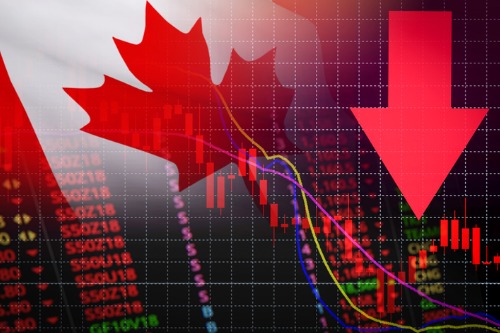

International trade wars, tariffs, economic sanctions, protectionism, and a potentially looming global recession are just a few of the regulatory and macroeconomic developments causing Canadian companies headaches at the start of the new decade.
Slowing economic growth is set to challenge Canada’s trade sector through 2020, especially with its biggest export market, the US. According to The Conference Board of Canada, a weaker US economic outlook does not bode well for Canadian exports, especially for non-energy sectors that rely heavily on global demand. Despite these struggles, the research organization suggests Canadian GDP will actually expand in 2020 and 2021 due to strong labour markets and modest growth in consumer spending.
It’s safe to say the general economic outlook is in a state of flux. As Phil Cook, chairman of Omega Insurance Holdings Inc, pointed out at the recent Insurance Institute of Canada ‘Industry Trends & Predictions: 2020’ meeting in Toronto, 2020 is a year of uncertainties. There’s the US federal election in the fall, the UK’s impending Brexit and its potential trade fall-out, and, on home soil, a Canadian minority government trying to find its feet.
“We’re floating at this point,” said Cook. “It looks like there will be an economic recovery during 2020 in the US, which means there will also be a small upturn in Canada. But it’s very difficult to predict those things. It’s interesting to me that we’re still in a state of flux. We’re still wondering what will happen in the US, what the outcome will be with Brexit, and how those things will impact the Canadian economy and how imports and exports will be affected.
“Will Donald Trump be re-elected? Does it really matter in terms of the US economy? There’s an argument to be made that if he’s not re-elected the stock market will go up. There’s also an argument to be made that if he is re-elected in the fall, the stock market will also go up. It’s very difficult to predict, and there are very few prognosticators out there taking that on.”
Insurance generally grows in line with gross domestic product (GDP). If 2020 does bring some sort of global economic slowdown - whether that’s triggered by the political climate, debt accumulation, or one significant event - there’s the potential for Canadian insurers to be negatively impacted.
“Many of our customers are businesses, so if businesses are struggling, their turnover goes down and employee wage rolls go down, then our income inevitably goes down. And you can also get more losses in times of economic hardship in certain commercial lines,” said Tim Carter, executive vice president at Argo Group. “There’s definitely a feeling of fear. It’s a different market and insurers [in North America] are having to work out how to navigate this market successfully.”
In the news: Cyber now top business risk globally
As uncertainty around the state of the economy prevails, there are a few things that insurance companies in Canada can do to mitigate their economic exposures. Linda Regner-Dykeman, chief agent, AGCS Canada, said that it’s important for underwriters in Canada to “ask the right questions” in order to fully understand the risk landscape and “find solutions accordingly to help manage this uncertainty.”
Ed Majkowski, EY Americas Insurance Sector and Advisory leader, said that where there’s a risk of economic slowdown, insurance companies are placing more and more focus on operational efficiency. He commented: “We’re seeing a lot of insurance companies being very cautious as they go into their 2020 and future strategic planning. They’re looking to take cost out of their system, while also making investments in technology and in their core systems so that they can get products out faster, improve the customer experience, and enable growth.”
